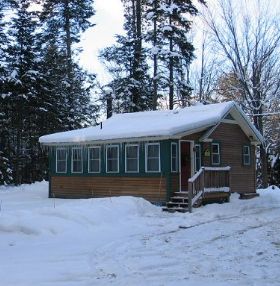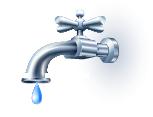Tankless water heaters are a great way to increase your hot water supply, while reducing your energy usage. They are powered by either electricity, gas, or a combination of both. When used in combination with low flow faucets and shower heads, they can help you save money on your monthly energy bills. Tankless water heaters, like HVAC equipment, require professional installation in order to maintain the warranty. The manufacturer often won’t honor the warranty, if a problem arises from improper installation. In addition to the warranty coverage, improper installation could also cause other problems in your home. If you sell the house, you might have to have it re installed, if the water heater was not properly installed the first time.
Energy Savings
Tankless water heaters heat water on demand, which saves energy over the typical tank model. The conventional water heater will try to keep the tank full of water at the designated temperature which means that the water heater will come on frequently in order to maintain the temperature. This also leads to waiting for the tank to refill before the hot water supply is replenished.
With a tankless water heater, the hot water supply is maintained by directing the water through a series of coils that heats the water as it passes through the unit on it’s way to the faucet or the appliance that is currently using the hot water. The tankless water heater is installed on the water line coming into your house, before the water lines go to the individual plumbing fixtures in your house.
Proper Sizing Matters
Tankless water heaters come in a wide variety of sizes. Since they don’t store water, they are designed to heat a certain amount of water per minute. You need to make sure that the water heater that is installed in your home can adequately meet the needs of your house. While tankless water heaters don’t run out of hot water, they do have limits on how much hot water they can provide per minute. In order to determine the needs of your house, you should combine the flow rate (gallons per minute) of all the appliances in your house that might be running at the same time.
Tankless water heaters are not only efficient, but they are also space saving. In order to have an adequate hot water supply, a hot water tank uses up a lot of floor space that could be better used in other ways.
Tankless water heaters that are newly manufactured are expected to last for at least twenty years, which is a lot longer than the ten to fifteen years that a tank is expected to last. These life spans can vary depending on environmental conditions and maintenance.
Maintenance
Maintenance is a requirement with tankless water heaters as with tanked water heaters. Sediment buildup and hard water can cause havoc with both types of water heaters. If you have hard water, it is recommended to install a water softener on the line into the water heater and to have an in line filter to help remove minerals and sediment before the water goes through the heater or other appliances. Most manufacturers recommend that you have annual maintenance performed on either variety of water heater, to help reduce the problems that sediment and hard water buildup can create.
With conventional water heaters, if something goes wrong with it, you typically have to replace the entire unit, which can be quite costly. Not only is the unit itself expensive, but often times you have to make changes to comply with building codes or to comply with the manufacturers installation instructions. With a tankless unit, it is possible that you can just have the heat exchanger replaced, saving money on both installation and on the equipment itself.
With winter on it’s way, you might want to have a more plentiful hot water supply available, since hot water usage typically goes up in the winter, between the weather and the holidays.
A tankless water heater can deliver a nearly constant hot water supply for your house, but they are more expensive than a conventional model. This is another reason to make sure that it is properly installed by a trained plumber. This will help reduce the likelihood of problems with the installation. If you are ready to speak to someone about installing a tankless water heater in your home.



